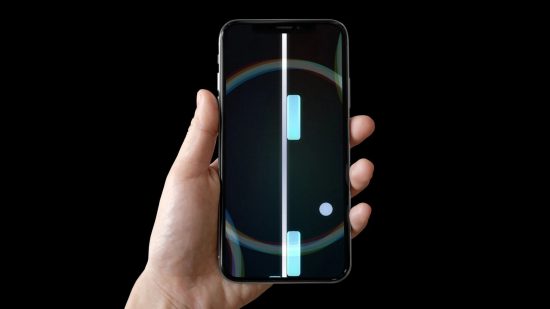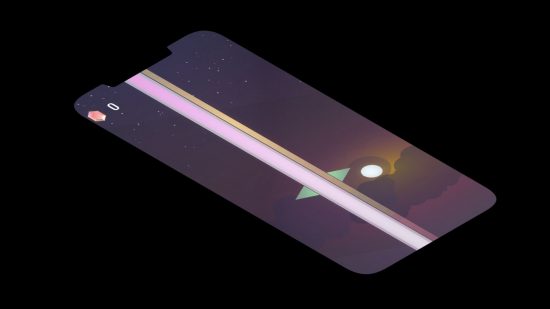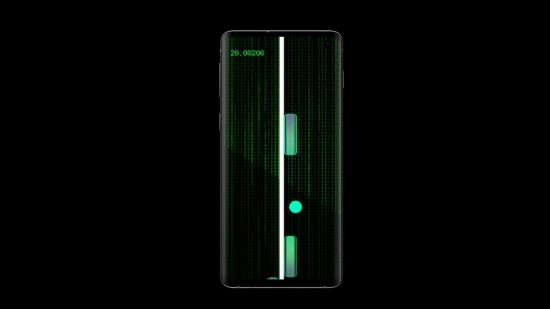As a games journalist, I get a lot of emails asking me if I want to interview people about their games. I mean a lot. So, it usually takes something pretty substantial to catch my eye. That’s exactly what happened when I got word from Game If You Are, who introduced me to Yuriy Poliakov, the Ukranian creator of Rhythmer and alumnus of their Spotlight programme. Sure, I hadn’t heard of Rhythmer or Yuriy’s outfit Sixteen Up Games, I’ll be honest, but the story is one worth telling.
It’s a story worth telling because it’s a story of hope. The odds are against Yuriy. He’s a non-English-speaking game developer from war-torn Ukraine working alone to deliver a title with little-to-no experience behind him. Still, his attitude isn’t defiant. He doesn’t come across like a salmon fighting his way upstream. He’s just a guy with a dream of making a video game, a torch-bearer for an industry losing its way. You don’t say no to those interviews.
Before we get into the nitty gritty of how Rhythmer came to be, I should probably explain what it is first. Rhythmer is a music-based 2D action game, with a path down the middle of the screen that you guide a ball down, avoiding obstacles that sync up with the beat on either side of the straight line. It’s more complex than it sounds, with the challenge dialling up quickly through each level, but there’s a sense of zen there too. Essentially, it’s like Hi-Fi Rush, Tetris, and Jungle Run all got together and somehow had a little action platformer baby.
Like many creators, Yuriy’s quest began through a general dissatisfaction with the games in front of him, and their music, telling me, “I am very picky about both games and music, many games seem boring to me, and almost all music is tasteless. This is bad, because I have to look for my diamonds, and there are very few of them”. So, Yuriy decided to try and create his own diamond, with work beginning on the concept of Rhythmer there and then.

Long before becoming a game developer, Yuriy began his creative life as a musician, offering me a little history lesson in his personal development. “I started making music at the age of 14, not professionally, but just for fun. Games have always been my main hobby. But it was only a few years ago that I thought about doing something of my own” he tells me, highlighting that despite loving both games and music, his experience before creating Rhythmer was at the hobby level, simply just enjoying writing songs and playing games as separate exercises.
From the start, Yuriy was intent on creating something not only that he found satisfying, but also something idiosyncratic. While not as bold to claim that the game is unique – something anyone would find difficult in such a saturated industry – Rhythmer’s developer feels like he’s managed to deliver, telling me “I intended to make my small contribution to the players getting a new experience, and I’m happy for every player who plays Rhythmer because I’m sure they got it”. From just a short time playing, I have to say he’s right. It’s not going to revolutionise the industry, but it might keep you up later than you intended bouncing to the rhythm.
So, we know why Yuriy woke up one day and thought “hey, I’m going to make a game”, but as someone who has had that feeling and never acted on it, I was slightly more interested in the how. Seemingly, it comes down to some serious self-belief and a solid bit of planning with Yuriy explaining, “the task was to connect music, gameplay, and art to create a harmonious symbiosis”. If you think that sounds like a manifesto in a single sentence, you’re right, and Yuriy knows this too, telling me, “it was a manifesto for myself, to do something and prove to myself that I can create something cool”.
Yuriy had his determination, his plan, and his method. All he needed to do was to start. I asked about the decision to make Rhythmer a 2D runner when so many belonging to the genre are 3D. Funnily enough, the answer harkens back to the old days of game development, when limitations were always dictating mechanics, with Yuriy’s explanation being simply that his SSD is out of action, putting boundaries on what he can create with the software at his disposal.
Limitations are a key theme for both Rhythmer as a game and Yuriy as a developer. There’s a sense of Yuriy in his creation in that it just keeps going, no obstacle can stop him from moving, not a lack of English language skills, a broken SSD, or even the nightmare that is conflict at your front door. I had to keep reminding myself as I wrote this, as you should reading, that throughout much of the development of Rhythmer, Yuriy has been watching his country struggle with the onset of war, having to leave behind loved ones in the heart of dangerous areas for his own safety.
“It’s really not easy to think about your goals at a time when there is a war, it can be difficult to focus when you find out that your country has been attacked, when you see photos of the shopping centre that you used to go to every weekend, and among the ruins, you recognise this place”. Just those words alone, crudely translated by the Google Translate function Yuriy relies on, paint a picture that few of us could relate to. Still, he somehow manages to find human, something almost inspiring, from the tragedy, telling me, “I would not say that the conflict affected the game, rather it influenced how you need to appreciate and love your loved ones”.
What I take from all of this, from Yuriy’s self-belief, his drive, and his will to continue against the odds is that beautiful thing we talked about earlier; hope. You might think I’m talking about the conflict here. I’m not, really. I’m talking about the individual creative spirit, something that often shines like a diamond under insurmountable pressure. I’m not saying Rhythmer is the best game ever, it’s damn fun, but I won’t engage in hyperbole just for the sake of it. What I am saying is that for it to be here, for Yuriy to still be working on it with every spare moment, is a reminder that the industry isn’t all just shady fat cats hiding behind walls of bureaucracy. There’s still a flicker of light in the dark.
The future for Yuriy is uncertain, but he knows what he wants. The developer tells me, “I would like to completely go into development, and devote full days to this, and not a few hours a week or weekends. Of course, there are plans for other projects, but right now the Rhythmer is not the full version for me yet”. So, even after making it through to the finals of the Google Indie Game Festival, Yuriy wants to improve both his game and his skillset, with no sign of stopping anytime soon.
I hope that Yuriy’s story gives you, well, a little hope. There’s not so much of that around at the minute. You should take something from this. Even if it’s just having a go at Yuriy’s game, which I would, of course, recommend, but larger than that, you should do that thing you wanted to do. You know, the thing at the back of your brain. That’s what Yuriy did, at a later age, with war on the horizon, and only Google Translate to connect him with the wider world. Tell me, what’s your excuse?
If you want to try Rhythmer for yourself, you can head over to the Google Play store to check it out. For more interesting discussions, check out our Yoko Taro interview, Crunchyroll Games interview, and our Monument Valley interview with Ustwo Games.














